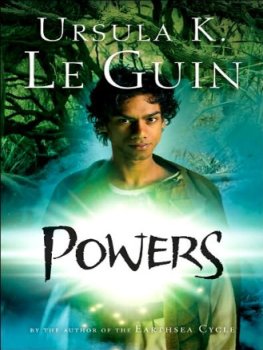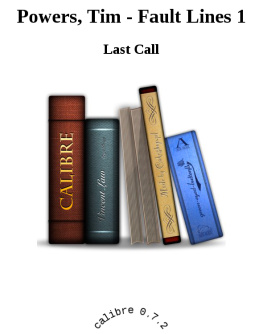An overture, then:
Lights blaze from an American Craftsman home in a demure neighborhood, late on a spring evening, in the tenth year of the altered world. Shadows dance against the curtains: a man working late, as he has every night that winter, in front of shelves filled with glassware. Hes clad in mufti, protective goggles, and latex hospital gloves, and his Giacometti body hunches forward as if in prayer. A gray but still-thick Beatles mop hangs in his eyes.
He studies a book on the gear-cluttered workbench. In one hand a single-channel pipette, raked like a dagger. From a tiny refrigerated vial, he sucks up no more colorless liquid than a hoverfly might take from a sprig of bee balm. This pellet goes into a tube no bigger than a mouses muzzle, a dollop so small he cant be sure its really there. His gloved hands shake as he shoots the used pipette tip into the trash.
More liquids go from the beakers into the dollhouse cocktail: oligo primers to start the magic; heat-stabilized catalyzing polymerase; nucleotides that fall in line like enlisted men for a five a.m. reveille, a thousand bonds per minute. The man follows the printed recipe like an amateur cook.
The brew goes into the thermal cycler for twenty-five rounds of roller-coaster flux, swinging between near-boiling and tepid. For two hours, DNA melts and anneals, snatches up free-floating nucleotides, and doubles each time through the loop. Twenty-five doublings turn a few hundred strands into more copies than there are people on Earth.
Outside, budding trees submit to the whims of a light wind. A wave of holdout nightjars skim the air for bugs. The do-it-yourself genetic engineer removes a colony of bacteria from his incubator and sets it under the laminar flow hood. He stirs the flattened culture flask and dispenses the loosened cells into a twenty-four-well sample plate. This plate goes under a microscope, at 400x. The man puts his eye up to the lens and sees the real world.
Next door, a family of four watches the denouement of Dancing with the Stars. One house to the south, an executive secretary for a semi-criminal real estate development firm arranges next falls cruise to Morocco. Across the double expanse of backyards, a market analyst and his pregnant lawyer wife lie in bed with their glowing tablets, playing offshore Texas hold em and tagging pictures from a virtual wedding. The house across the street is dark, its owners at an all-night faith-healing vigil in West Virginia.
No one thinks twice about the quiet, older bohemian in the American Craftsman at 806 South Linden. The man is retired, and people take up all kinds of hobbies in retirement. They visit the birthplaces of Civil War generals. They practice the euphonium. They learn tai chi or collect Petoskey stones or photograph rock formations in the shape of human faces.
But Peter Els wants only one thing before he dies: to break free of time and hear the future. Hes never wanted anything else. And late in the evening, in this perversely fine spring, wanting that seems at least as reasonable as wanting anything.
I did what they say I tried to do. Guilty as charged.
On the tape, the hum of deep space. Then a clear alto says: Pimpleia County Emergency Services, Dispatcher Twelve. What is the location of your emergency?
There comes a sound like a ratchet wrapped in a towel. A hard clap breaks into clatter: the phone hitting the floor. After a pause, a tenor, in the upper registers of stress, says: Operator?
Yes. What is the loc
We need some medical help here.
The alto crescendos. Whats the nature of your problem?
The answer is a low, inhuman cry. The tenor murmurs, Its okay, sweetie. Its all right.
Is someone sick? the alto asks. Do you need an ambulance?
Another muffled bump turns into static. The silence ends in a stifled O. Rapid words shear off, unidentifiable even with digital filtering and enhancement. The sounds of failed comforting.
The dispatcher says, sir? Can you confirm your address?
Someone hums a muted tune, a lullaby from another planet. Then the line goes dead.
I was sure that no one would ever hear a note. This was my piece for an empty hall.
The two officers who pulled up in front of 806 South Linden in an indigo squad car had already dealt that evening with an antidepressant overdose, a molar-breaking scrum in a convenience store, and a eugenics debate involving small arms fire. Life in a Pennsylvania college town flexing itself, and the night was still young.
The house belonged to Peter Clement Els, an adjunct professor whod been released from Verrata College three years before. The police database had nothing; it seemed Mr. Els had never even jaywalked. The two officers a young man with a shot-putters gait and an older woman who gazed around bewildered as she walked headed up the path to the front steps. Maple branches clicked in the spring wind. Dampened hilarity spilled out of a nearby house and across two dark lawns. High overhead, the twin jets of a short-haul flight shrieked toward the regional airport. Cars scythed up and down the state highway four blocks away.
The front porch was littered with things on the verge of being put away: a wood chipper, a pair of chewed-over rawhide bones, nested flowerpots, a bicycle pump. The male officer held open the screen, and the woman knocked, braced for anything.
Something flickered behind a half-moon window, and the door swung open. A gaunt, monkish man stood in the wedge of light. He wore rimless glasses and a plaid work shirt pilled around the collar. His gray hair looked as if a pioneer woman had cut it using an inverted bowl. An archipelago of food stains speckled his corduroys. His eyes were way elsewhere.
Mild disarray ruled the room behind him. Mission chairs sat ringed by bookshelves. Books, CD jewel cases, and stalagmite-coated candles covered every surface. A corner of the worn Persian rug was flipped up. The evenings dinner dishes sat stacked on a magazine-covered coffee table.
The woman officer surveyed the scene. Peter Els? You placed a call to Emergency Services?
Els closed his eyes, then opened them. My dog just died.
Your dog?
Fidelio.
You dialed 911 for your dog?
Beautiful golden retriever. Fourteen years old. She started hemorrhaging out of the blue.
Your dog was sick, the policeman said, her voice sagging under the weight of humanity, and you didnt dial a vet?
The guilty party dropped his eyes. Im sorry. A stroke, I guess. She was sliding around on the floor and howling. She bit me when I tried to move her. I thought that if someone could help restrain. .
Behind a gate, down a hallway leading from the living room, a green quilt covered a lump as big as a curled-up child. The male officer pointed. Peter Els turned to look. When he turned back, his face was an anagram for confusion.
She must have thought I was punishing her. He held the half-open door and studied the ceiling. Im sorry to have bothered anyone. It felt like an emergency.
The officer nodded toward the lump. Can we have a look?
Els flinched. At what? Shes dead. After a clumsy pause, he stepped aside.
In Elss living room, the uniforms looked harsher and more hardware-laden. The three walls of floor-to-ceiling shelves stuffed with books and CDs unnerved the male officer. He stepped over the gate and down the hall to the covered lump lying on the floor, where he turned back the sheet.
That dog trusted me

















